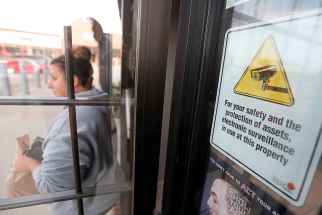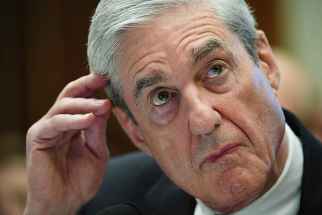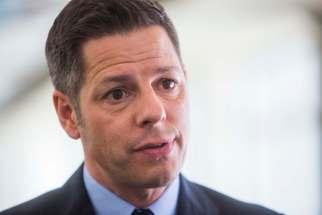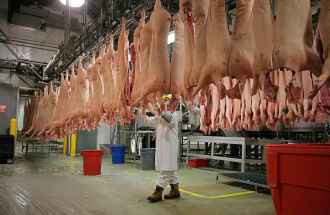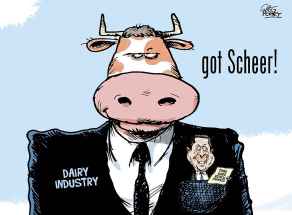Mayor right to be irked with transit union
Read this article for free:
or
Already have an account? Log in here »
To continue reading, please subscribe:
Monthly Digital Subscription
$0 for the first 4 weeks*
- Enjoy unlimited reading on winnipegfreepress.com
- Read the E-Edition, our digital replica newspaper
- Access News Break, our award-winning app
- Play interactive puzzles
*No charge for 4 weeks then price increases to the regular rate of $19.00 plus GST every four weeks. Offer available to new and qualified returning subscribers only. Cancel any time.
Monthly Digital Subscription
$4.75/week*
- Enjoy unlimited reading on winnipegfreepress.com
- Read the E-Edition, our digital replica newspaper
- Access News Break, our award-winning app
- Play interactive puzzles
*Billed as $19 plus GST every four weeks. Cancel any time.
To continue reading, please subscribe:
Add Free Press access to your Brandon Sun subscription for only an additional
$1 for the first 4 weeks*
*Your next subscription payment will increase by $1.00 and you will be charged $16.99 plus GST for four weeks. After four weeks, your payment will increase to $23.99 plus GST every four weeks.
Read unlimited articles for free today:
or
Already have an account? Log in here »
Hey there, time traveller!
This article was published 24/07/2019 (2331 days ago), so information in it may no longer be current.
It was an unusually aggressive position for Mayor Brian Bowman to take.
But it was necessary.
Bowman called out the Amalgamated Transit Union Local 1505 this week. He accused it of not bargaining in good faith on behalf of city bus drivers. The mayor said after six months of fruitless contract talks, the two sides have reached an impasse.
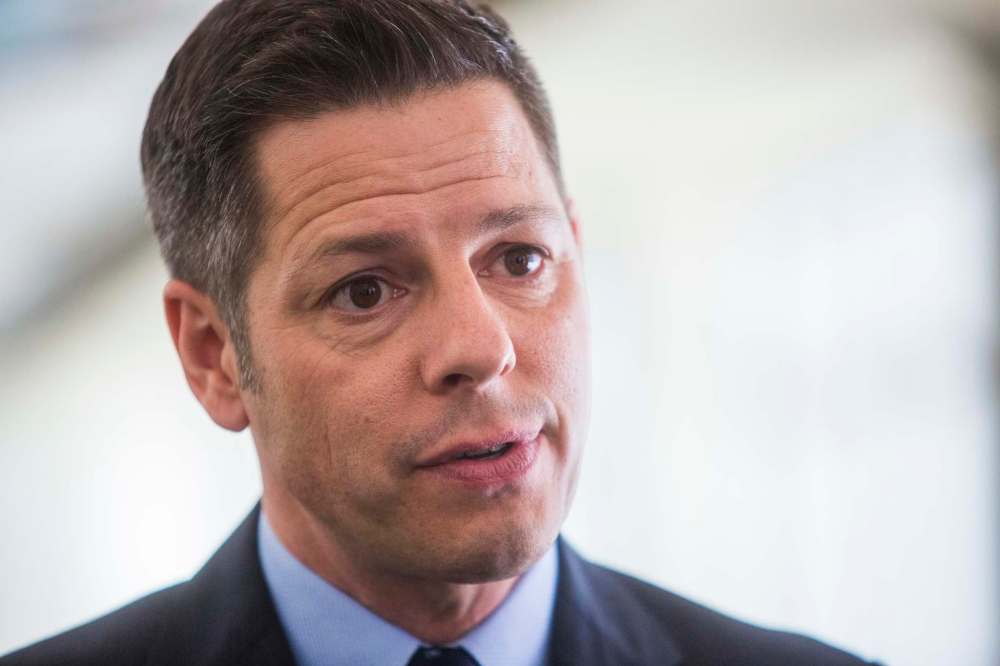
Bowman took it a step further and warned Winnipeggers who rely on transit to find other modes of transportation, claiming bus drivers would likely go on strike in September. The ATU has denied it’s planning strike action.
Both sides have since agreed to participate in mediation with the Manitoba Labour Board. But they remain far apart.
The mayor’s doomsday scenario wasn’t so much a prediction as it was a shot across the bow of a union that doesn’t seem to understand the financial situation the city is in.
Winnipeg taxpayers have for years been saddled with unsustainable labour cost increases at city hall, which have driven up property taxes, utility rates and other fees.
Winnipeg taxpayers have for years been saddled with unsustainable labour cost increases at city hall, which have driven up property taxes, utility rates and other fees.
The city’s salary and benefits expenditures – which include wage increases, new hires, pension costs, overtime, job classification changes and severance pay – have grown well beyond the combined rate of inflation and population growth.
Fortunately, that’s starting to change. For the first time in at least two decades, the city’s labour costs have been held below that threshold for the past two years.
The city has negotiated collective agreements in recent years that have slowed the growth of salary and benefits costs, including far more sustainable contracts with police, firefighters and CUPE Local 500 workers.
It doesn’t solve all of the city’s spending problems, but it’s a key part of putting the city on a more financially stable footing.
The alternative is to raise taxes and fees, which is a tough sell in a city where people are saddled with one of the highest tax burdens in the country.
Salary and benefits costs at city hall were $530.9 million in 2006. That grew 58 per cent to $836.9 million by 2016, an average annual increase of 4.6 per cent. That’s well above the combined rate of inflation and population growth of three per cent a year during that period.
By contrast, labour costs at city hall rose only 1.8 per cent last year, figures in the city’s 2018 annual report show. In 2017, it increased one per cent. That’s a substantial improvement compared with previous years. Even as recently as 2016 salary and benefits costs jumped 3.8 per cent.
Controlling labour costs at city hall can’t be a short-term endeavour. It has to continue in future years and it must apply to all bargaining units, including bus operators.
Controlling labour costs at city hall can’t be a short-term endeavour. It has to continue in future years and it must apply to all bargaining units, including bus operators.
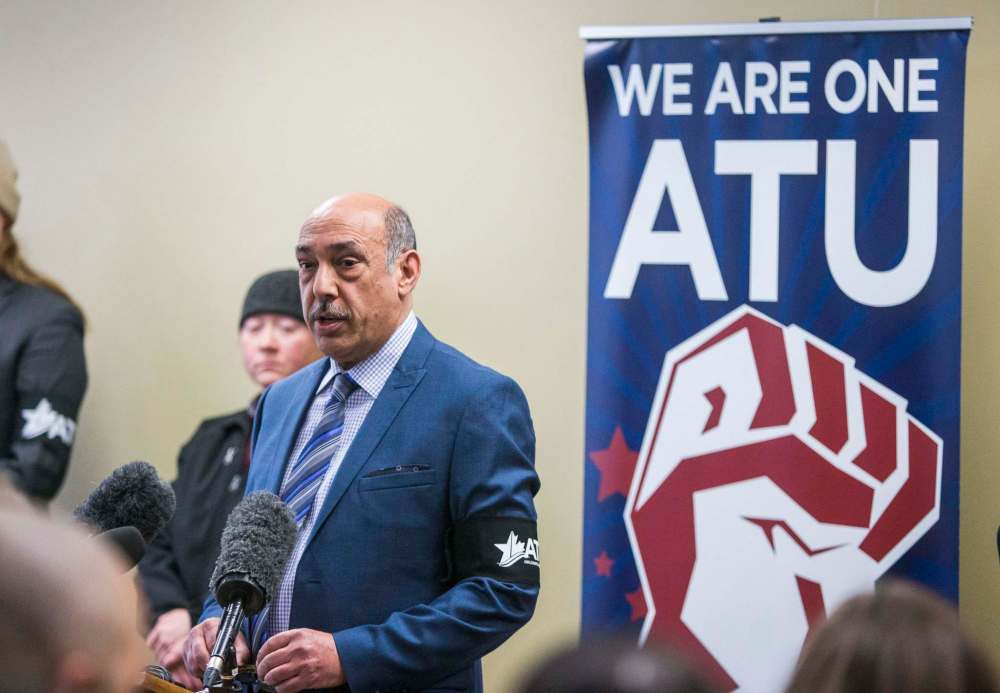
All public-sector organizations in Manitoba face the same financial constraints. The Pallister government has mandated a two-year wage freeze for all public-sector employees who fall under provincial jurisdiction (which doesn’t apply to the City of Winnipeg). They have no choice. The province is still running a $360-million deficit.
Even Doctors Manitoba, which represents more that 3,000 doctors, just accepted a tentative four-year deal that includes two years of pay freezes.
But for some reason, the Transit union believes those fiscal realities don’t apply to its workers.
Nobody is asking bus drivers to take a pay cut. And while there may be reasonable requests by the ATU to increase spending in areas beyond wages – such as counselling services for operators – there are limits to how far the city can go.
City hall has addressed many of the safety issues demanded by the ATU, including new driver safety shields that will be installed on all buses. And there have been reasonable wage offers made to the ATU, which the union has rejected.
It should come as little surprise, then, that city negotiators and the mayor question the ATU’s commitment to reach a fair deal. The ATU seems more interested in union militancy than finding a middle ground that reflects city hall’s financial position.
That’s why a normally mild-mannered Bowman took the position he did this week. It was the right one.
tom.brodbeck@freepress.mb.ca

Tom Brodbeck is an award-winning author and columnist with over 30 years experience in print media. He joined the Free Press in 2019. Born and raised in Montreal, Tom graduated from the University of Manitoba in 1993 with a Bachelor of Arts degree in economics and commerce. Read more about Tom.
Tom provides commentary and analysis on political and related issues at the municipal, provincial and federal level. His columns are built on research and coverage of local events. The Free Press’s editing team reviews Tom’s columns before they are posted online or published in print – part of the Free Press’s tradition, since 1872, of producing reliable independent journalism. Read more about Free Press’s history and mandate, and learn how our newsroom operates.
Our newsroom depends on a growing audience of readers to power our journalism. If you are not a paid reader, please consider becoming a subscriber.
Our newsroom depends on its audience of readers to power our journalism. Thank you for your support.






